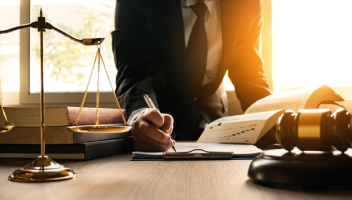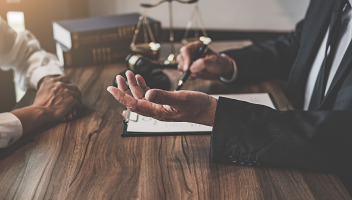Seeking Legal Help When Dealing with Unpaid Debts
Other Legal KnowledgeIt is very common in the United States of America to encounter a situation in which money is not paid back by a person who has borrowed you money for a very long time. Whether it is a personal loan or a business transaction, sometimes the debtor may be unable or unwilling to repay the debt on time. In this case, creditors can seek help through legal channels. This article will cover the legal options and opportunities available to you in the United States of America when you are in arrears, including lawsuits, civil lawsuits, and debt recovery. And here are the details.
Step 1: Sue
Suing is the first and primary step for creditors to seek legal relief. The creditor can file a lawsuit in the local court and ask the court to order the debtor to pay the debt. Before suing, creditors need to gather relevant evidence, such as contracts, ious, bills and so on to prove and demonstrate the existence of the debt and the amount that the debtor owed. In the process of prosecution, the creditor needs to submit a complaint to the court and serve the complaint to the debtor. The debtor has time after receipt of the complaint to reply. If the debtor does not answer or the court finds the debtor guilty, the creditor may obtain the judgment and enforce the judgment. This is the first step of asking for your money back from a debtor.
Step 2: Civil Action
Civil litigation is a procedure for resolving disputes through legal means. In the event that money is not paid, creditors can choose to file a civil lawsuit. The civil procedure includes prosecution, defense, evidence exchange, trial and judgment. The creditor is required to file the suit in court and serve the suit on the debtor. During the trial, creditors need to provide and offer sufficient evidence to prove the existence of the debt and the amount owed. If the court finds the debtor guilty, the creditor may obtain the judgment and enforce it. This is the second step of getting your money back.
Step 3: Debt Recovery
Debt recovery is a way to recover a debt through a specialized agency or lawyer. Creditors can entrust professional debt recovery agencies or lawyers to help recover debts. The debt collection agency or lawyer will communicate with the debtor and take the appropriate legal means to recover the debt. This may include sending reminders, taking legal action or negotiating with the debtor. Debt recovery agencies or lawyers usually charge a fee, but their expertise and experience can improve the success rate of debt recovery. This is the third step you protect your property rights from being offended by the debtor continuously and constantly.
Step 4: Other Legal Avenues
In addition to lawsuits, civil actions and debt recovery, creditors can consider other legal avenues to seek help. For example, a creditor can report a debtor's bad credit history to a credit reporting agency, thereby affecting the debtor's credit rating and ability to borrow. Creditors can also apply to the court to freeze the debtor's bank accounts or wages to guarantee repayment of the debt.
In summary, in the United States, creditors can seek help through legal channels such as lawsuits, civil lawsuits and debt recovery. These legal channels can help creditors recover debts and protect their rights and interests. However, each legal approach has its own characteristics and limitations, creditors should choose the appropriate legal approach according to the specific situation, and seek professional legal advice and help when necessary.


Free Legal Guidance
 Illegal Behaviors Mistakenly Perceived as Lawful in the USA
Illegal Behaviors Mistakenly Perceived as Lawful in the USA
 Lawyer Salaries in the United States
Lawyer Salaries in the United States
 The Bar Exam of the United States
The Bar Exam of the United States
 Seeking Legal Help When Dealing with Unpaid Debts
Seeking Legal Help When Dealing with Unpaid Debts
 Best Law Schools in the USA
Best Law Schools in the USA




